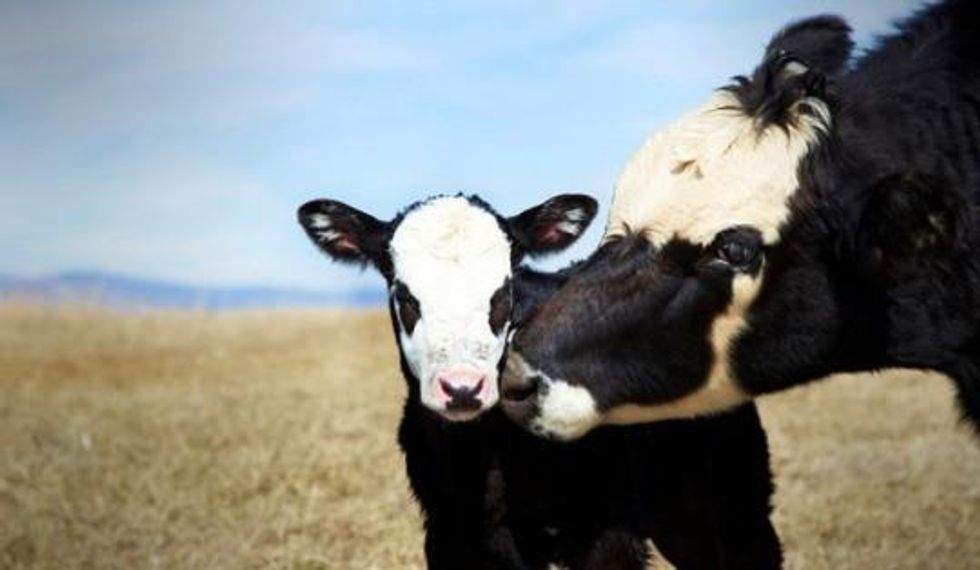Whistleblowing employees have frequently played a vital role in exposing animal abuse, unsafe working conditions and environmental problems on industrial factory farms and slaughter plants. For example, a 2012 undercover investigation by Mercy for Animals exposed egregious animal abuse at Bettencourt Dairies, Idaho's largest dairy. Footage from a hidden camera showed employees and management viciously beating, punching and even sexually assaulting cows.
The result? Criminal cruelty convictions and a tidal wave of bad publicity for the state's dairy industry.
"Witnessing and documenting cruelty is now the crime, rather than the cruelty itself."
After this scandal, the state's dairy producers had the chance to start regaining public trust by making meaningful animal welfare reforms. Instead, they chose a different path; they chose to introduce an anti-whistleblower "ag-gag" bill which makes it a crime to simply videotape abusive or otherwise unethical activities on farms.
Sadly, despite overwhelming condemnation by Idaho residents, Governor Butch Otter signed the bill into law. In other words, witnessing and documenting cruelty is now the crime, rather than the cruelty itself. Even employees and journalists who document misconduct could face jail time, whether it's mistreatment of animals, food safety concerns, sexual harassment, embezzlement or environmental crimes. Needless to say, this law poses serious threats to constitutional freedoms of speech and the press. It also casts even further distrust in the minds of Americans about how animals are treated in our food system.
This law not only obstructs our justice system, it's an embarrassment to Idaho and farmers who welcome transparency. It will help the dairy industry keep abuses like those at Bettencourt hidden from the public. Additionally, it puts the entire state's agricultural industry at odds with their customers, who are demanding more information about how their families' food is being produced. Even Chobani yogurt, a major buyer of Idaho milk, urged the governor to reconsider his support of this bill while it was pending before him.
Unfortunately, industrial agriculture's attempts to silence anyone who dares to speak out against it isn't isolated to Idaho and other states across the country have introduced them. These ag-gag bills have quickly become a public relations nightmare for animal agriculture. In fact, the National Pork Producers Council noted, "[w]e did a study of coverage of 'ag-gag' laws that found that 99 percent of the stories about it were negative." And world-renowned meat industry consultant Temple Grandin, Ph.D., of Colorado State University declared that ag-gag bills are "the stupidest thing that ag ever did."
Idaho's ag-gag bill met similar disapproval from the state's papers. For example, The Idaho Mountain Express said that "[p]utting private interests above public interests in the Constitution is troubling and egregious." Its editorial board concluded that Idaho shouldn't "criminalize the collection and release of information about the food we eat."
Americans overwhelmingly support the humane treatment of animals and oppose efforts to cover up animal abuse. Idaho has put itself at odds with core American values such as preventing cruelty to animals, and has now aligned Idaho's agribusiness industry against free speech, animal protection and transparency. It's a dark time for animals in Idaho. But while animals may have lost this battle, there's no doubt that the trajectory of our society is one toward greater protections for them, even with the meat and dairy industries grasping at straws to prevent this progress.

